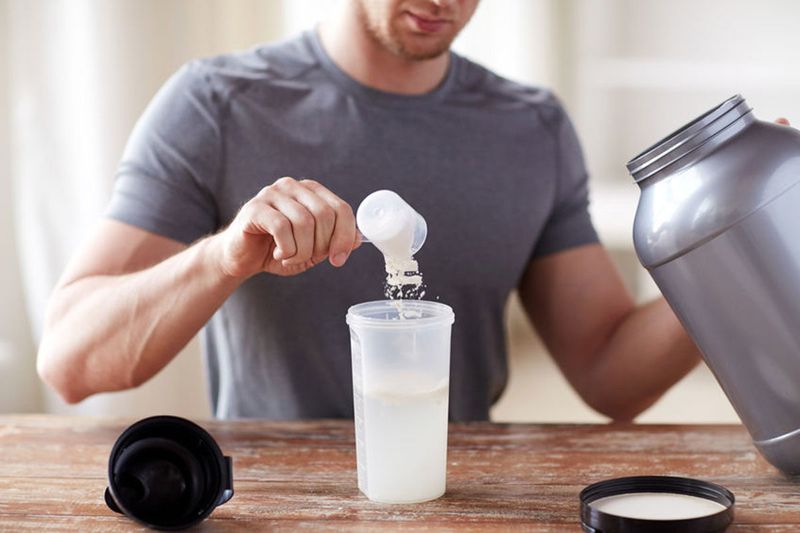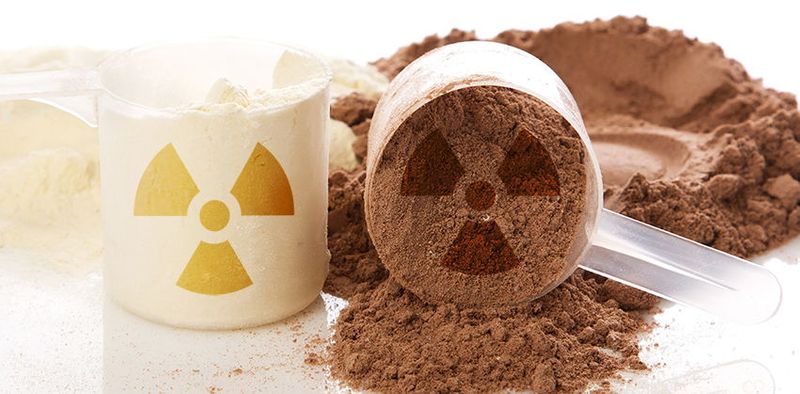Protein Supplements – Is It Good Or Bad?

Protein supplements cannot hurt, right? We know you have questions about the efficacy and safety of protein supplementation and we are going to answer all your concerns right here. People all around the world spend billions of dollars on sports nutrition and protein supplements that can enhance their athletic performance and improve their looks. These supplements usually consist of whey, casein, soy, egg albumin, brown rice, cow milk, wheat, beef, pea, hemp, etc. and are available as ready-to-drink shakes, bars, gels and powders in a variety of flavors.

Whey protein is prevalent in wellness and dietary enhancement. It’s produced using whey, which is the fluid that isolates from milk during the cheese-making process. The whey is then separated, refined and splash dried into whey protein powder. There are three main types of Whey protein the only difference between them is how it has been processed:
- Whey Protein Concentrate: It contains about 70–80% protein. It’s the most widely recognized kind of whey protein and has more lactose, fat, and minerals from milk.
- Whey Protein hydrolysate: This structure is pre-processed, enabling your body to ingest it quicker.
- Whey Protein isolate: It contains more than 90% of protein. It’s increasingly refined and has less lactose and fat, however, it additionally contains less valuable minerals.
How are protein supplements good?
- Proteins are good for health as they help build muscle. They improve immune function too.
- Furthermore, protein may also help reduce blood pressure.
- Research has proved beyond a doubt that higher protein intake may help manage normal blood pressure and prevent complications due to hypertension.
- Consuming enough soy protein is also beneficial to cardiovascular health as it lowers triglyceride levels and LDL cholesterol levels. It also increases HDL levels.
Whey protein reduces obesity and enhances immunity as well as anti-oxidant activity. It also lowers blood glucose levels. Remember, training while taking whey supplements can enhance lean body mass, strength, and muscle size as whey is a complete protein containing all nine of the amino acids. Thus, these supplements are a good source of all the amino acids required by your body.

Many of the protein is a sort of mixture of beta-lactoglobulin, alpha-lactalbumin, immunoglobins, and bovine serum albumin. Some of the proteins are said to be dangerous but Whey protein is safe to use if used in a proper manner. Some of its key benefits are as follows:
Also read: All Types Of Protein & Their Usage
- Helps in weight loss: In a study done where those who were given Whey protein, they lost more body fat compared to those who are taking more beverages.
- Cancer cure properties: In some research, it has been published that, Whey protein has some properties to cure cancer.
- Asthma: There are many patients who are suffering from asthma diseases, so these patients were given 10 grams of whey protein twice daily for at least one month and certain improvements were noted in the health of the patient.
How are they bad?
- Protein supplements are not regulated by the US Food and Drug Administration (FDA).
- As the supplement market is unregulated, there is a major risk of the use of inferior products and contamination with heavy metals and pesticides.
- Another reason protein supplementation is bad is that you don’t require so much protein, even if you are working out. The recommended daily intake of protein for healthy adults is just 0.75 g of protein/kg body weight. This means you need about 45 – 56 g of protein a day. Adult athletes need 1.5 g/kg body weight.
- But if you are on protein supplements, you may end up ingesting more protein than required. This can cause a buildup of ‘ketones’ bodies. And this, in turn, can cause ketosis. In simple words, ketosis can cause your body’s pH to lower to dangerously acidic levels, leading to a state called ketoacidosis.
- This can lead to an inordinate load on your kidneys as they work overtime to get rid of ketones and this may lead to severe dehydration, particularly if you exercise heavily. And this can make you weak and dizzy, not strong.
- It can also give you bad breath and other health problems like osteoporosis.
It might be high in included sugars and calories. Some protein powders have little included sugar, and others have a great deal (as much as 23 grams for every scoop). Some protein powders end up transforming a glass of milk into a beverage with in excess of 1,200 calories. This results in the risk of weight gain and an undesirable spike in glucose. Patients with dairy products sensitivities or issue processing lactose (milk sugar) can encounter gastrointestinal uneasiness on the off chance that they utilize a milk-based protein powder.

There may be even several cases where the side-effects of protein are recorded. There are many individuals who are unaware of the measures that how a protein diet has to be taken. The only aspect is to provide correct information about the protein types and the procedure to consume it.
Also read: Know The Protein Quality And Recipes Of Chicken
Last, but not the least, protein supplements contain extra calories. Extra protein required by you can be received without a problem by eating a protein-rich diet. You don’t need protein supplements for this. If you wish to discuss any specific problem, you can consult a doctor.









